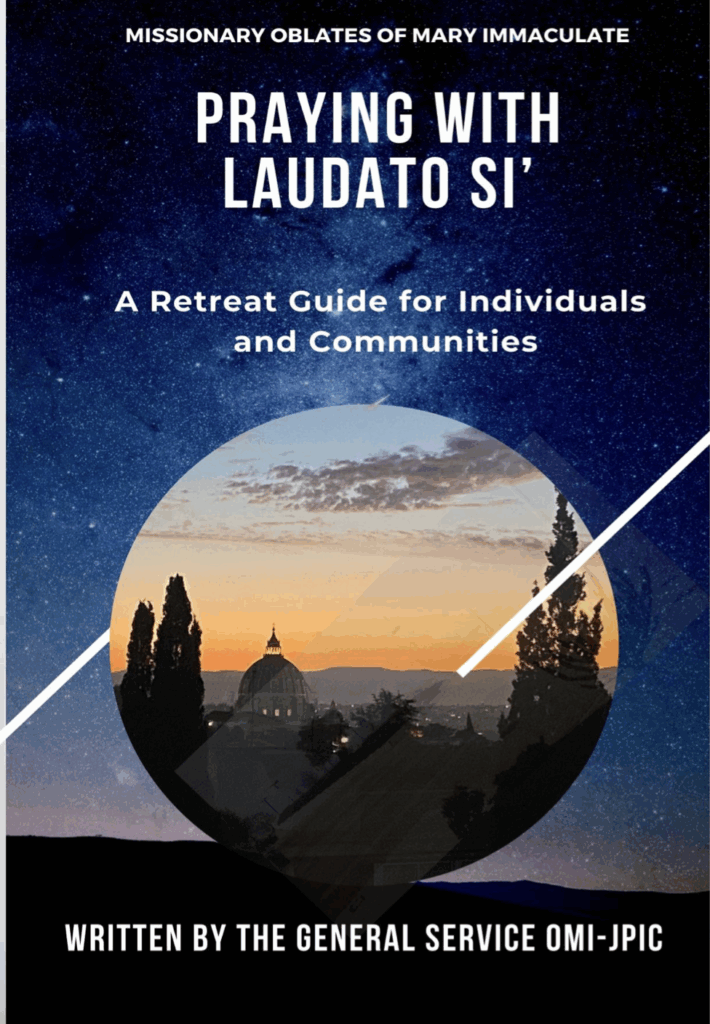Action on behalf of justice, peace and the integrity of creation is an integral part of evangelization. (Rule 9a)
The Congregation’s General Service of Justice, Peace, and Integrity of Creation, in response to a mandate of our 37th General Chapter, has prepared a guide for individuals and communities to pray using Pope Francis’ 2015 encyclical letter, Laudato Si’.
Using insights from the encyclical letter, this guide presents Scripture passages, texts, stories and images from the Oblate tradition. Its aim is to lead to reflection, prayer, and commitment to action. The guide is not intended as a study guide to Laudato Sí’. Texts from the letter are presented for the purpose of inspiration and prayer.
The guide may be used by individuals or communities. One theme may be selected for a day of prayer, or several themes may be used over an extended time of retreat. The themes presented are suggestions; others may be developed by users. The motivation for the choice of these is that they show an aspect of the Pope’s encyclical letter as it is read through the chosen lens of GS-JPIC: Praying with Laudato Sí’ using insights drawn from listening to the cry of the earth and the cry of the poor. Some of the themes include the voices of the poor with whom the Oblates are working.
DOWNLOAD THE GUIDE AT:

